Speakers
Downloads:
Cost:
PowerMEMS School Speakers
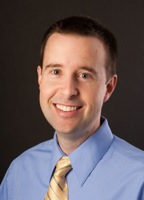
David P. Arnold is currently an Associate Professor
in the Department of Electrical and Computer Engineering at the University
of Florida and a member of the Interdisciplinary Microsystems Group. He
received dual B.S. degrees in electrical and computer engineering in 1999,
followed by the M.S. degree in electrical engineering in 2001, from the
University of Florida. He received the Ph.D. degree in electrical
engineering from the Georgia Institute of Technology in 2004. His research
focuses on magnetic micro/nanostructures, magnetic microsystems, and
miniaturized power/energy systems. He has co-authored over 110 refereed
journal and conference publications, and holds three U.S. patents. He is a
recipient of the 2008 Presidential Early Career Award in Science and
Engineering (PECASE) and the 2009 DARPA Young Faculty Award. He is a Senior
Member of IEEE and also a member of Tau Beta Pi, and Eta Kappa Nu. Beyond
his passion for research and teaching, he most enjoys spending time with his
wife and three children.
------------------------------------------------------------------
 Xuyuan
Chen received his Bachelor degree in Semiconductor Physics from
Northwest University, Xian, China in 1983, his M.Sc in Electrical
Engineering from Xian Jiaotong University, Xian, China in 1988, and his
Ph.D. in semiconductor materials and devices from Eindhoven University of
Technology, the Netherlands in 1997. After finishing his Ph.D. degree, he
jointed Microelectronics Lab at School of Engineering Science, Simon Fraser
University, Canada, as a Research Fellow, where he worked on silicon
microelectronic device and III-V DFB laser diodes. From Oct. 1997 he worked
with Physics Department at University of Tromso, Norway, as Associate
Professor, and continued as Professor until 2002. During that time, his
research topics were microelectronic devices and opto-electronics. In 2002,
he took his one year sabbatical leave in NSF Center for Advanced
Manufacturing and Packaging of Microwave, Optical and Digital Electronics,
University of Colorado, Boulder, USA, where he worked on MEMS technology. He
joined Microsystems and Nanotechnology, SINTEF ICT, Norway at end of 2002
where he started as a senior research scientist for the research topics on
MEMS. From 2004 he has been a Professor at Department of Micro and Nano
Systems Technology at Vestfold University College (HiVe), Norway, where he
has worked on optical MEMS, micro power sources and energy storage. He has
broad experience from national and international collaboration, working
groups and organizations. He is author or co-author of about 160 scientific
publications in international journals and conferences, invited talks and
overview papers in the area of semiconductor technology and micro-and
nano-systems. He was honoured as a distinguish professor from Xiamen
University in 2005 and North University of China in 2010. He has also served
as SPIE conference chairs, and as committee member for several international
workshops and conferences.
Xuyuan
Chen received his Bachelor degree in Semiconductor Physics from
Northwest University, Xian, China in 1983, his M.Sc in Electrical
Engineering from Xian Jiaotong University, Xian, China in 1988, and his
Ph.D. in semiconductor materials and devices from Eindhoven University of
Technology, the Netherlands in 1997. After finishing his Ph.D. degree, he
jointed Microelectronics Lab at School of Engineering Science, Simon Fraser
University, Canada, as a Research Fellow, where he worked on silicon
microelectronic device and III-V DFB laser diodes. From Oct. 1997 he worked
with Physics Department at University of Tromso, Norway, as Associate
Professor, and continued as Professor until 2002. During that time, his
research topics were microelectronic devices and opto-electronics. In 2002,
he took his one year sabbatical leave in NSF Center for Advanced
Manufacturing and Packaging of Microwave, Optical and Digital Electronics,
University of Colorado, Boulder, USA, where he worked on MEMS technology. He
joined Microsystems and Nanotechnology, SINTEF ICT, Norway at end of 2002
where he started as a senior research scientist for the research topics on
MEMS. From 2004 he has been a Professor at Department of Micro and Nano
Systems Technology at Vestfold University College (HiVe), Norway, where he
has worked on optical MEMS, micro power sources and energy storage. He has
broad experience from national and international collaboration, working
groups and organizations. He is author or co-author of about 160 scientific
publications in international journals and conferences, invited talks and
overview papers in the area of semiconductor technology and micro-and
nano-systems. He was honoured as a distinguish professor from Xiamen
University in 2005 and North University of China in 2010. He has also served
as SPIE conference chairs, and as committee member for several international
workshops and conferences.
------------------------------------------------------------------
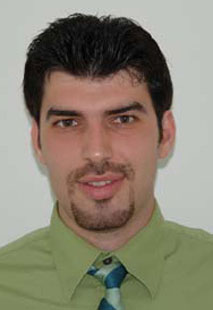 Mohammed
F. Daqaq is an Associate Professor of Mechanical Engineering at Clemson
University. He received his B.S. degree in Mechanical Engineering at Jordan
University of Science and Technology in 2001, and his M.Sc. and Ph.D.
degrees in Engineering Mechanics at Virginia Tech in 2003, and 2006
respectively. Dr. Daqaq's research focuses on non-linear dynamics with
applications to micro-power generation, manufacturing processes, and delay
systems. He was a recipient of the NSF CAREER award, the Clemson University
award for faculty excellence, and the Eugene Bishop award for teaching
excellence.
Mohammed
F. Daqaq is an Associate Professor of Mechanical Engineering at Clemson
University. He received his B.S. degree in Mechanical Engineering at Jordan
University of Science and Technology in 2001, and his M.Sc. and Ph.D.
degrees in Engineering Mechanics at Virginia Tech in 2003, and 2006
respectively. Dr. Daqaq's research focuses on non-linear dynamics with
applications to micro-power generation, manufacturing processes, and delay
systems. He was a recipient of the NSF CAREER award, the Clemson University
award for faculty excellence, and the Eugene Bishop award for teaching
excellence.
------------------------------------------------------------------
------------------------------------------------------------------
------------------------------------------------------------------
------------------------------------------------------------------ 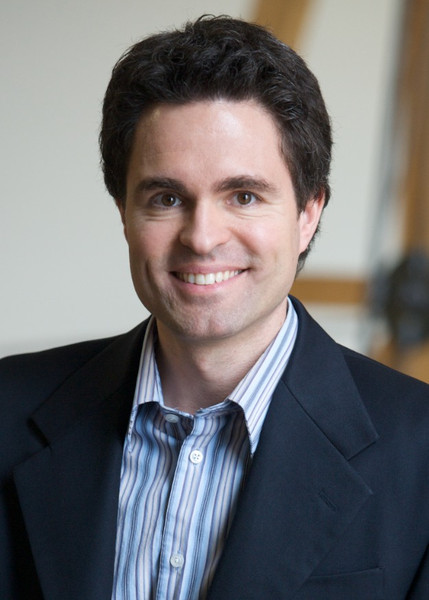 Luc G. Fréchette is the Canada Research Chair in Microfluidics and Power MEMS and professor at the Universite de Sherbrooke.
He received his Ph.D. in Aeronautics and Astronautics at the Massachusetts
Institute of Technology (MIT) in 2000 for the design and fabrication of
MEMS-based energy conversion microsystems. After 4 years on the faculty at
Columbia University, Dr. Frechette moved his research activities to the
Universite de Sherbrooke (Canada) to hold his Chair position. His area of
expertise is microelectromechanical systems (MEMS) development with an
emphasis on thermal and fluidic devices. His research activities include
micro heat engines, micro fuel cells, vibration energy harvesting,
microfluidics for thermal management, as well as MEMS sensors and actuators
for cooling and harsh environments. Dr. Frechette contributed over 120
journal and conference publications in these fields and is a member of ASME
and IEEE.
Luc G. Fréchette is the Canada Research Chair in Microfluidics and Power MEMS and professor at the Universite de Sherbrooke.
He received his Ph.D. in Aeronautics and Astronautics at the Massachusetts
Institute of Technology (MIT) in 2000 for the design and fabrication of
MEMS-based energy conversion microsystems. After 4 years on the faculty at
Columbia University, Dr. Frechette moved his research activities to the
Universite de Sherbrooke (Canada) to hold his Chair position. His area of
expertise is microelectromechanical systems (MEMS) development with an
emphasis on thermal and fluidic devices. His research activities include
micro heat engines, micro fuel cells, vibration energy harvesting,
microfluidics for thermal management, as well as MEMS sensors and actuators
for cooling and harsh environments. Dr. Frechette contributed over 120
journal and conference publications in these fields and is a member of ASME
and IEEE.
------------------------------------------------------------------
 Robert Hahn is currently head of the micro energy systems group at Fraunhofer IZM in Berlin. He received the M.S. and the PhD degree in electrical engineering in 1986 and 1990 respectively from the Technische Universität Dresden. He has taken over the coordination of several national and European research projects for the development of new batteries, micro-fuel cells and integrated power supplies for micro systems and energy autarkic electronics. Dr. Hahn has filed 30 patents in the area of micro energy systems and authored and co-authored more than 100 journal and conference publications as well as book chapters. His research focusses on the development of wafer integrated micro batteries, 3D silicon processing, micro fuel cells and hydrogen sources. He received the f-cell award for the Fraunhofer micro fuel cell development in 2005. He is coordinator of the FP7 project MATFLEXEND that develops integrated micro batteries and capacitive harvesters and the Fraunhofer MicroLiB project. As a teacher, he gives lectures in micro energy harvesting and storage at the Technische Universität Berlin, Technische Akademie Esslingen, HDT and Dresden International University.
Robert Hahn is currently head of the micro energy systems group at Fraunhofer IZM in Berlin. He received the M.S. and the PhD degree in electrical engineering in 1986 and 1990 respectively from the Technische Universität Dresden. He has taken over the coordination of several national and European research projects for the development of new batteries, micro-fuel cells and integrated power supplies for micro systems and energy autarkic electronics. Dr. Hahn has filed 30 patents in the area of micro energy systems and authored and co-authored more than 100 journal and conference publications as well as book chapters. His research focusses on the development of wafer integrated micro batteries, 3D silicon processing, micro fuel cells and hydrogen sources. He received the f-cell award for the Fraunhofer micro fuel cell development in 2005. He is coordinator of the FP7 project MATFLEXEND that develops integrated micro batteries and capacitive harvesters and the Fraunhofer MicroLiB project. As a teacher, he gives lectures in micro energy harvesting and storage at the Technische Universität Berlin, Technische Akademie Esslingen, HDT and Dresden International University.
------------------------------------------------------------------
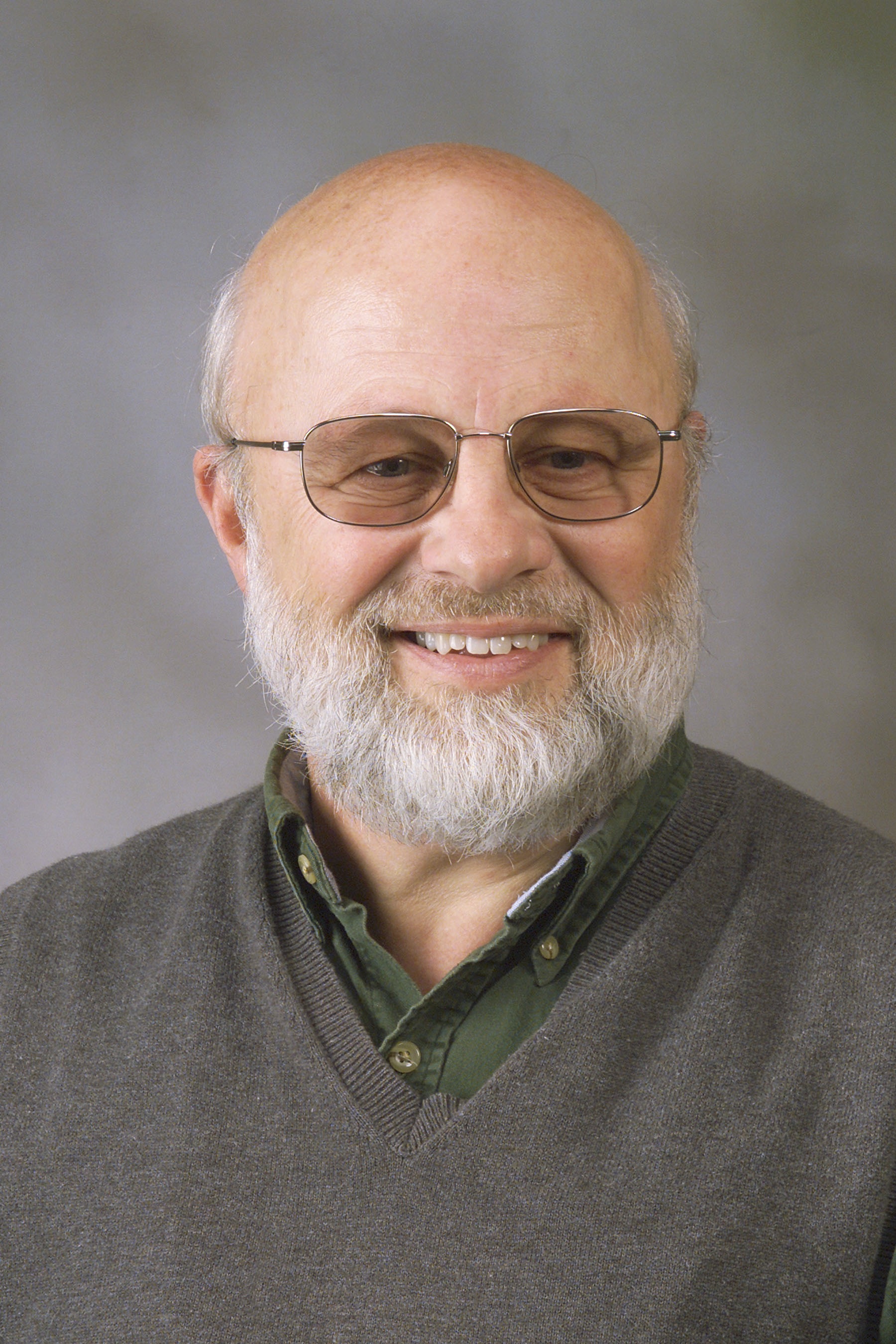 Daniel
J. Inman received his Ph.D. from Michigan State University in Mechanical
Engineering in 1980 and spent 14 years at the University of Buffalo,
followed by 19 years at Virginia Tech. He is currently the Chair of the
Department of Aerospace Engineering at the University of Michigan. Since
1980, he has published eight books (on vibration, control, statics, dynamics
and energy harvesting), eight software manuals, 20 book chapters, 300
journal papers and 555 proceedings papers, given 56 keynote or plenary
lectures, graduated 57 Ph.D. students and supervised more than 75 MS
degrees. He is a Fellow of the American Academy of Mechanics (AAM), the
American Society of Mechanical Engineers (ASME), the International Institute
of Acoustics and Vibration (IIAV), and the American Institute of Aeronautics
and Astronautics (AIAA). He is currently Technical Editor of the Journal of
Intelligent Material Systems and Structures (1999- ). He was awarded the
ASME Adaptive Structures Award in April 2000, the ASME/AIAA SDM Best Paper
Award in April 2001, the SPIE Smart Structures and Materials Life Time
Achievement Award in March of 2003, the ASME/Boeing Best Paper Award by the
ASME Aerospace Structures and Materials Technical Committee 2007, the ASME
Den Hartog Award in 2007 and the Life Time Achievement award in Structural
Health Monitoring in 2009. He has served as a Member-at-Large on the
Society of Experimental Mechanics Executive Board (2008-2010) and a former
Chair of the ASME Applied Mechanics Division.
Daniel
J. Inman received his Ph.D. from Michigan State University in Mechanical
Engineering in 1980 and spent 14 years at the University of Buffalo,
followed by 19 years at Virginia Tech. He is currently the Chair of the
Department of Aerospace Engineering at the University of Michigan. Since
1980, he has published eight books (on vibration, control, statics, dynamics
and energy harvesting), eight software manuals, 20 book chapters, 300
journal papers and 555 proceedings papers, given 56 keynote or plenary
lectures, graduated 57 Ph.D. students and supervised more than 75 MS
degrees. He is a Fellow of the American Academy of Mechanics (AAM), the
American Society of Mechanical Engineers (ASME), the International Institute
of Acoustics and Vibration (IIAV), and the American Institute of Aeronautics
and Astronautics (AIAA). He is currently Technical Editor of the Journal of
Intelligent Material Systems and Structures (1999- ). He was awarded the
ASME Adaptive Structures Award in April 2000, the ASME/AIAA SDM Best Paper
Award in April 2001, the SPIE Smart Structures and Materials Life Time
Achievement Award in March of 2003, the ASME/Boeing Best Paper Award by the
ASME Aerospace Structures and Materials Technical Committee 2007, the ASME
Den Hartog Award in 2007 and the Life Time Achievement award in Structural
Health Monitoring in 2009. He has served as a Member-at-Large on the
Society of Experimental Mechanics Executive Board (2008-2010) and a former
Chair of the ASME Applied Mechanics Division.
------------------------------------------------------------------
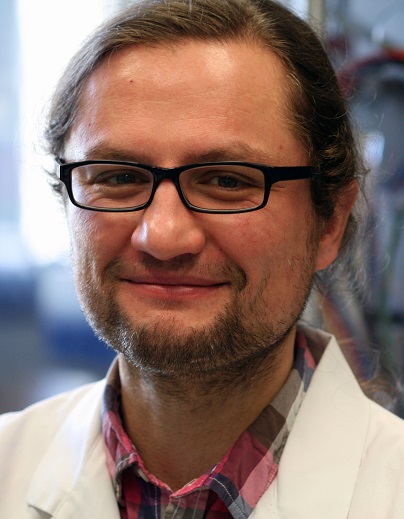 Sven Kerzenmacher studied Process- and Environmental
Engineering at Offenburg University of Applied Sciences, from where he also
holds a Master's Degree in "Energy Conversion & Management". The practical
part of his Master's Thesis on novel cathodes for solid oxide fuel cells was
performed at the University of Texas at Austin/USA (Prof. Manthiram & Prof.
Kovar). Afterwards Sven Kerzenmacher joined the German Aerospace Center
(DLR) as a research engineer in fuel cell development. In 2005 he started
his PhD work on implantable glucose fuel cells for the energy supply of
medical implants at the Laboratory for MEMS Applications (Prof. Zengerle,
Department of Microsystems Engineering - IMTEK, University of Freiburg),
which he completed in 2010. Since 2008 he is heading the interdisciplinary
Biofuel Cell group at the Laboratory for MEMS Applications. His research is
focused on engineering aspects of bioelectrochemical systems.
Sven Kerzenmacher studied Process- and Environmental
Engineering at Offenburg University of Applied Sciences, from where he also
holds a Master's Degree in "Energy Conversion & Management". The practical
part of his Master's Thesis on novel cathodes for solid oxide fuel cells was
performed at the University of Texas at Austin/USA (Prof. Manthiram & Prof.
Kovar). Afterwards Sven Kerzenmacher joined the German Aerospace Center
(DLR) as a research engineer in fuel cell development. In 2005 he started
his PhD work on implantable glucose fuel cells for the energy supply of
medical implants at the Laboratory for MEMS Applications (Prof. Zengerle,
Department of Microsystems Engineering - IMTEK, University of Freiburg),
which he completed in 2010. Since 2008 he is heading the interdisciplinary
Biofuel Cell group at the Laboratory for MEMS Applications. His research is
focused on engineering aspects of bioelectrochemical systems.
------------------------------------------------------------------
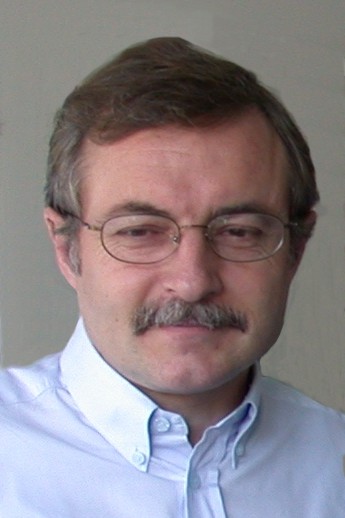 Paul
Muralt is currently adjunct Professor at Swiss Federal Institute of
Technology EPFL at Lausanne, Switzerland. He leads a group in piezoelectric
thin film, MEMS, and nanotechnology activities at the Ceramics Laboratory of
the Materials Science Institute. He has studied solid-state physics and
accomplished a PhD work in incommensurate structures at the Swiss Federal
Institute of Technology ETH in Zurich. From 1984 to 1986, he was
post-doctoral fellow at the IBM Research Laboratory in Zurich, where he
pioneered the application of scanning tunnelling microscopy to the imaging of
the electrical surface potential (STP). After a stay at the Free University
of Berlin, and several years as manager in a thin film coating tool company,
he joined EPFL in 1993. His main competences are in piezoelectric thin film
processing of perovskite ferroelectrics (such as PbZrTiO3) and polar films
(such as AlN), in combination with piezoelectric micro and nano devices,
covering particularly ultrasonic applications in the MHz to GHz range. More
recent works also deal with oxygen ion conductors for micro solid oxide fuel
cells. As teacher, he gives lectures in thin film deposition, micro and
nanotechnology, surface analysis and basic ceramics for engineers. He
authored or co-authored more than 200 scientific articles, which are cited
over 5,000 times in total. He is IEEE Fellow, member of the Materials
Research Society, and the American Ceramic Society. He was co-chair of the
MRS spring meeting 2008, co-organized three MRS or E-MRS symposia, and was
also member of program committees of the specialized ferroelectric meetings
ISAF 2007, ISIF 2008, and IFCS 2010.
Paul
Muralt is currently adjunct Professor at Swiss Federal Institute of
Technology EPFL at Lausanne, Switzerland. He leads a group in piezoelectric
thin film, MEMS, and nanotechnology activities at the Ceramics Laboratory of
the Materials Science Institute. He has studied solid-state physics and
accomplished a PhD work in incommensurate structures at the Swiss Federal
Institute of Technology ETH in Zurich. From 1984 to 1986, he was
post-doctoral fellow at the IBM Research Laboratory in Zurich, where he
pioneered the application of scanning tunnelling microscopy to the imaging of
the electrical surface potential (STP). After a stay at the Free University
of Berlin, and several years as manager in a thin film coating tool company,
he joined EPFL in 1993. His main competences are in piezoelectric thin film
processing of perovskite ferroelectrics (such as PbZrTiO3) and polar films
(such as AlN), in combination with piezoelectric micro and nano devices,
covering particularly ultrasonic applications in the MHz to GHz range. More
recent works also deal with oxygen ion conductors for micro solid oxide fuel
cells. As teacher, he gives lectures in thin film deposition, micro and
nanotechnology, surface analysis and basic ceramics for engineers. He
authored or co-authored more than 200 scientific articles, which are cited
over 5,000 times in total. He is IEEE Fellow, member of the Materials
Research Society, and the American Ceramic Society. He was co-chair of the
MRS spring meeting 2008, co-organized three MRS or E-MRS symposia, and was
also member of program committees of the specialized ferroelectric meetings
ISAF 2007, ISIF 2008, and IFCS 2010.
------------------------------------------------------------------
 Hubregt J. Visser was born in Goes, The Netherlands, on October 26, 1964. He received the M.Sc. degree in electrical engineering from Eindhoven University of Technology, The Netherlands, in 1989. In 1990, after fulfilling his military service at TNO Physics and Electronics Laboratory, The Hague, The Netherlands, he joined the same laboratory as a civilian. He has participated in several projects concerning near-field antenna measurements, monolithic microwave integrated circuits design, and phased-array antenna design. From mid 1996 to mid 1997, he was stationed at the European Space Research and Technology Centre, RF Systems Division, Noordwijk, The Netherlands, where he worked on infinite waveguide array antenna modelling. In 2001 he joined TNO Science and Industry, Eindhoven, The Netherlands where he has been involved in antenna miniaturization projects. Since 2006 he has been part-time connected to the Holst Centre, Eindhoven, The Netherlands and since 2009 he joined the Holst Centre as an employee of IMEC. Here he is working on wireless energy transfer. In 2009 he obtained a Ph.D. from Eindhoven University of Technology, The Netherlands and Katholieke Universiteit Leuven, Belgium. He is associate professor at Eindhoven University of Technology where he teaches antenna theory. Hubregt is author of the books "Array and Phased Array Antenna Basics" (Wiley, 2005), "Approximate Antenna Analysis for CAD" (Wiley, 2009) and "Antenna Theory and Applications" (Wiley, 2012).
Hubregt J. Visser was born in Goes, The Netherlands, on October 26, 1964. He received the M.Sc. degree in electrical engineering from Eindhoven University of Technology, The Netherlands, in 1989. In 1990, after fulfilling his military service at TNO Physics and Electronics Laboratory, The Hague, The Netherlands, he joined the same laboratory as a civilian. He has participated in several projects concerning near-field antenna measurements, monolithic microwave integrated circuits design, and phased-array antenna design. From mid 1996 to mid 1997, he was stationed at the European Space Research and Technology Centre, RF Systems Division, Noordwijk, The Netherlands, where he worked on infinite waveguide array antenna modelling. In 2001 he joined TNO Science and Industry, Eindhoven, The Netherlands where he has been involved in antenna miniaturization projects. Since 2006 he has been part-time connected to the Holst Centre, Eindhoven, The Netherlands and since 2009 he joined the Holst Centre as an employee of IMEC. Here he is working on wireless energy transfer. In 2009 he obtained a Ph.D. from Eindhoven University of Technology, The Netherlands and Katholieke Universiteit Leuven, Belgium. He is associate professor at Eindhoven University of Technology where he teaches antenna theory. Hubregt is author of the books "Array and Phased Array Antenna Basics" (Wiley, 2005), "Approximate Antenna Analysis for CAD" (Wiley, 2009) and "Antenna Theory and Applications" (Wiley, 2012).
------------------------------------------------------------------
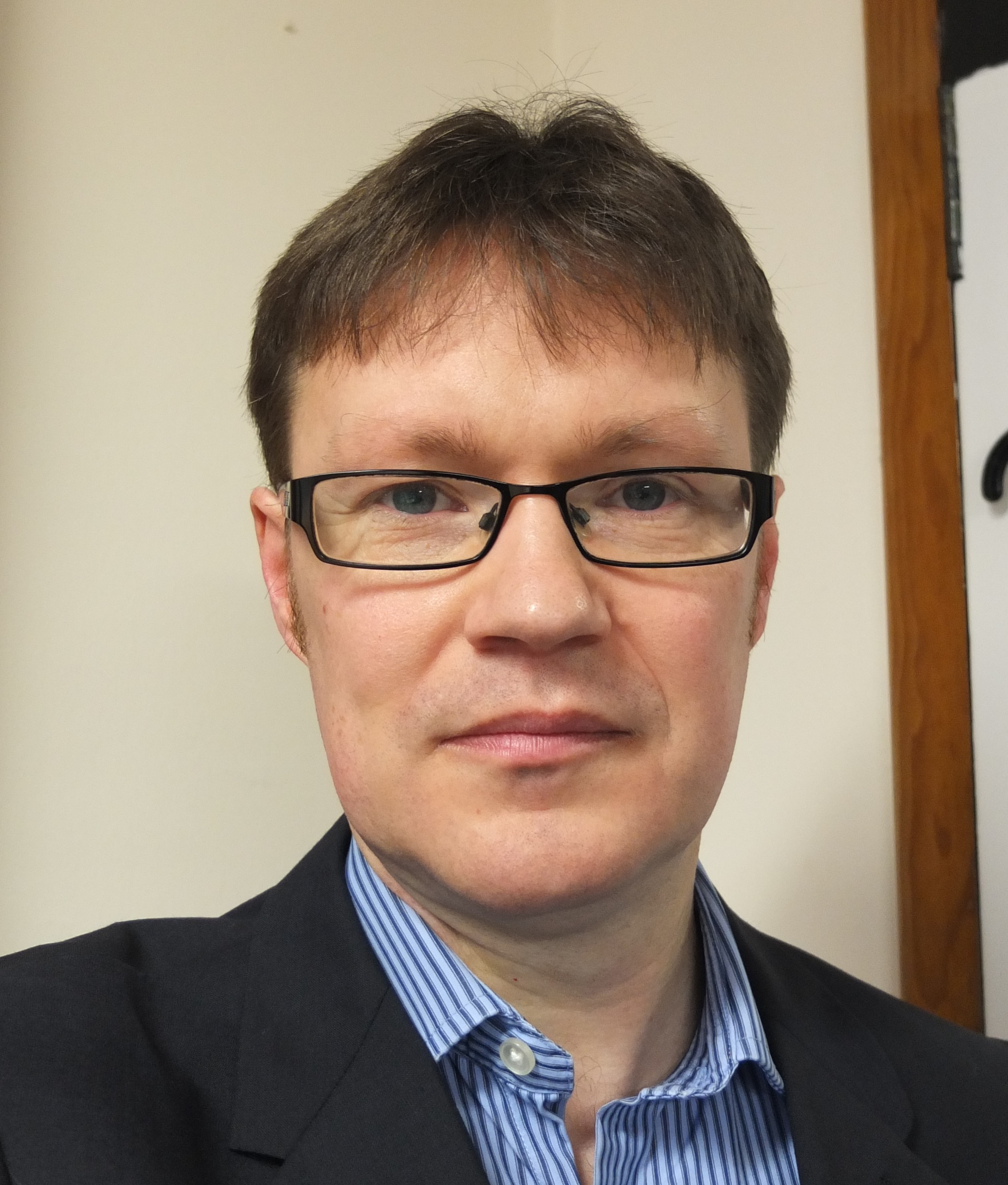 Douglas J. Paul is Director of the James Watt Nanofabrication Centre at the University of Glasgow, U.K.. He has an MA
degree in Physics and Theoretical Physics and a PhD from the Cavendish
Laboratory, University of Cambridge. Prof Paul is a Fellow of the Royal
Society of Edinburgh, a Fellow of the Institute of Physics, a chartered
physicist, a Senior Member of the IEEE, was a Fellow of St. Edmund's College
in Cambridge, an EPSRC Advanced Fellow and managed all the Si/SiGe research
in the Cavendish Laboratory before taking up a Professorial position at the
University of Glasgow in 2007. Prof Paul presently sits on a number of U.K.
government department committees including the MOD Defence Scientific
Advisory Council (DSAC), the Home Office CBRN Scientific Advisory Committee
and previously sat on DTI Foresight Committees. He was the U.K.
representative to the NATO CBP Science Panel between 2004 and 2008. He was
one of the editors for the 1st Technology Roadmap on European
Nanoelectronics, a significant part of which is now in the ITRS Roadmap
Future Emerging Technology section and gave evidence at the House of Lords
to the Lords Select Committee panel on 'Chips for Everything'. He is
responsible for the EC ZEROPOWER network for writing a roadmap on
self-powered autonomous systems and energy harvesting systems. He is also
involved in organising a number of EC ZEROPOWER workshops and summer schools
on energy harvesting. He sits on the scientific, programme and / or
organising committees for a number of international conference series
including the IEEE 12th International Conference on Nanotechnology, Power
MEMS and the International SiGe Technology and Device Meeting, the SiGe, Ge,
& Related Compounds Symposium. Prof Paul's research interests include
nanofabrication, Si/SiGe heterostructures, nanoelectronic silicon devices,
quantum cascade lasers, quantum devices, silicon photonics, terahertz
systems, sensors and thermoelectrics.
Douglas J. Paul is Director of the James Watt Nanofabrication Centre at the University of Glasgow, U.K.. He has an MA
degree in Physics and Theoretical Physics and a PhD from the Cavendish
Laboratory, University of Cambridge. Prof Paul is a Fellow of the Royal
Society of Edinburgh, a Fellow of the Institute of Physics, a chartered
physicist, a Senior Member of the IEEE, was a Fellow of St. Edmund's College
in Cambridge, an EPSRC Advanced Fellow and managed all the Si/SiGe research
in the Cavendish Laboratory before taking up a Professorial position at the
University of Glasgow in 2007. Prof Paul presently sits on a number of U.K.
government department committees including the MOD Defence Scientific
Advisory Council (DSAC), the Home Office CBRN Scientific Advisory Committee
and previously sat on DTI Foresight Committees. He was the U.K.
representative to the NATO CBP Science Panel between 2004 and 2008. He was
one of the editors for the 1st Technology Roadmap on European
Nanoelectronics, a significant part of which is now in the ITRS Roadmap
Future Emerging Technology section and gave evidence at the House of Lords
to the Lords Select Committee panel on 'Chips for Everything'. He is
responsible for the EC ZEROPOWER network for writing a roadmap on
self-powered autonomous systems and energy harvesting systems. He is also
involved in organising a number of EC ZEROPOWER workshops and summer schools
on energy harvesting. He sits on the scientific, programme and / or
organising committees for a number of international conference series
including the IEEE 12th International Conference on Nanotechnology, Power
MEMS and the International SiGe Technology and Device Meeting, the SiGe, Ge,
& Related Compounds Symposium. Prof Paul's research interests include
nanofabrication, Si/SiGe heterostructures, nanoelectronic silicon devices,
quantum cascade lasers, quantum devices, silicon photonics, terahertz
systems, sensors and thermoelectrics.
------------------------------------------------------------------
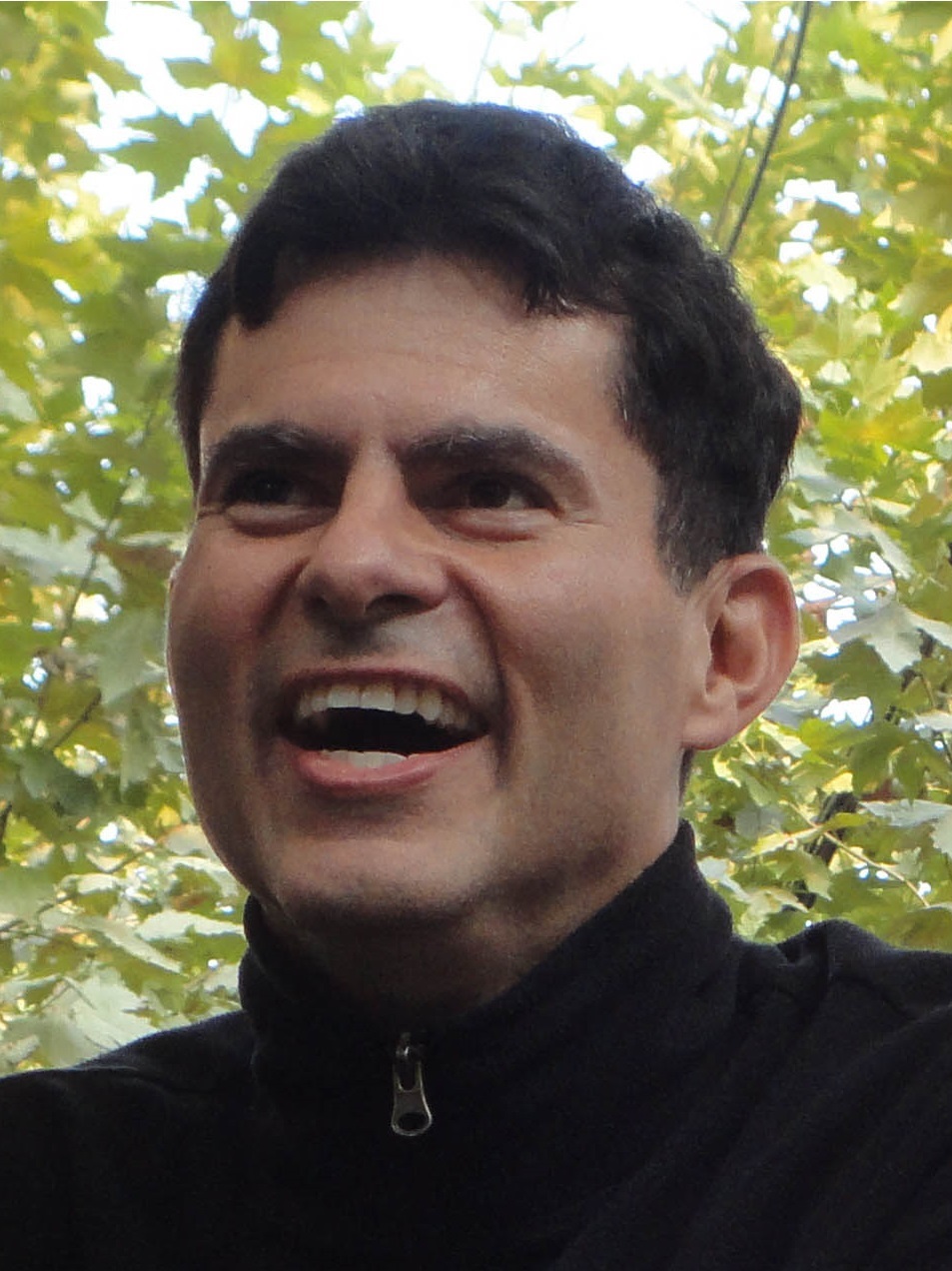 Gabriel
Alfonso Rincón-Mora (Ph.D., IEEE Fellow, and IET Fellow) worked for
Texas Instruments in 1994-2003, was Adjunct Professor for Georgia Tech in
1999-2001, and is Visiting Professor at National Cheng Kung University in
Taiwan since 2011 and Full Professor with Tenure at Georgia Tech, whose
faculty he joined in 2001. His scholarly products include 8 books, 4 book
chapters, 38 patents issued, over 130 scientific publications, over 26
commercial power-chip designs, and over 80 international speaking
engagements. Awards include the Society of Professional Hispanic Engineers'
(SHPE) "National Hispanic in Technology Award," Florida International
University's "Charles E. Perry Visionary Award," a "Commendation
Certificate" from the Lieutenant Governor of California, IEEE CASS Service
Award, Robins Air Force Base's "Orgullo Hispano" and "Hispanic Heritage"
awards, and induction into Georgia Tech's "Council of Outstanding Young
Engineering Alumni" in 2000. Hispanic Business magazine also named him one
of "The 100 Most Influential Hispanics" in 2000. He has served as
Distinguished Lecturer, General Chair, Technical Program Chair and Co-Chair,
Associate Editor, Guest Editor and Co-Editor, and Chapter Chair and
Vice-Chair on multiple occasions for IEEE, several international
conferences, and journal publications.
Gabriel
Alfonso Rincón-Mora (Ph.D., IEEE Fellow, and IET Fellow) worked for
Texas Instruments in 1994-2003, was Adjunct Professor for Georgia Tech in
1999-2001, and is Visiting Professor at National Cheng Kung University in
Taiwan since 2011 and Full Professor with Tenure at Georgia Tech, whose
faculty he joined in 2001. His scholarly products include 8 books, 4 book
chapters, 38 patents issued, over 130 scientific publications, over 26
commercial power-chip designs, and over 80 international speaking
engagements. Awards include the Society of Professional Hispanic Engineers'
(SHPE) "National Hispanic in Technology Award," Florida International
University's "Charles E. Perry Visionary Award," a "Commendation
Certificate" from the Lieutenant Governor of California, IEEE CASS Service
Award, Robins Air Force Base's "Orgullo Hispano" and "Hispanic Heritage"
awards, and induction into Georgia Tech's "Council of Outstanding Young
Engineering Alumni" in 2000. Hispanic Business magazine also named him one
of "The 100 Most Influential Hispanics" in 2000. He has served as
Distinguished Lecturer, General Chair, Technical Program Chair and Co-Chair,
Associate Editor, Guest Editor and Co-Editor, and Chapter Chair and
Vice-Chair on multiple occasions for IEEE, several international
conferences, and journal publications.
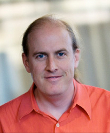 Joshua R. Smith is an Associate Professor in the departments of Computer Science and Engineering and Electrical Engineering at the University of Washington, Seattle, where he leads the Sensor Systems research group. He is interested in all aspects of sensor systems: developing novel sensors, powering them wirelessly, communicating with them, and using them in applications such as biomedical electronics, robotics, ubiquitous computing. He the UW thrust leader for Communications and Interface in the NSF Engineering Research Center (ERC) for Sensorimotor Neural Engineering, and the theme leader for low power sensing and communication in the Intel Science and Technology Center for Pervasive Computing. He co-invented an electric field sensing system for suppressing unsafe airbag firing that is included in every Honda car. He is the editor of a book entitled “Wirelessly powered sensor systems and computational RFID” (Springer, 2013) that includes his work in this area as well as related work by other researchers. He received B.A. degrees in computer science and philosophy from Williams College, the M.A. degree in physics from Cambridge University, and the Ph.D. and S.M. degrees from the MIT Media Lab's Physics and Media group.
Joshua R. Smith is an Associate Professor in the departments of Computer Science and Engineering and Electrical Engineering at the University of Washington, Seattle, where he leads the Sensor Systems research group. He is interested in all aspects of sensor systems: developing novel sensors, powering them wirelessly, communicating with them, and using them in applications such as biomedical electronics, robotics, ubiquitous computing. He the UW thrust leader for Communications and Interface in the NSF Engineering Research Center (ERC) for Sensorimotor Neural Engineering, and the theme leader for low power sensing and communication in the Intel Science and Technology Center for Pervasive Computing. He co-invented an electric field sensing system for suppressing unsafe airbag firing that is included in every Honda car. He is the editor of a book entitled “Wirelessly powered sensor systems and computational RFID” (Springer, 2013) that includes his work in this area as well as related work by other researchers. He received B.A. degrees in computer science and philosophy from Williams College, the M.A. degree in physics from Cambridge University, and the Ph.D. and S.M. degrees from the MIT Media Lab's Physics and Media group.
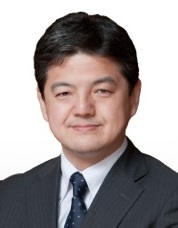 Yuji
Suzuki received the B.S., M.S., and Dr.Eng. degrees in mechanical
engineering from the University of Tokyo, Tokyo, Japan, in 1987, 1989, and
1993, respectively. He is currently with the Department of Mechanical
Engineering, University of Tokyo, as a Professor. He serves as Program
Committee Member of PowerMEMS Workshop, Editorial Board Member of JMM. He
also served as a general co-chair of IEEE MEMS2010 (Hong Kong), and TPC
Chair of PowerMEMS 2005 (Tokyo). His research interests include MEMS-based
energy harvesting using electrets, micro energy conversion such as
microscale combustion, and optimal design/control of micro heat and fluid
flow.
Yuji
Suzuki received the B.S., M.S., and Dr.Eng. degrees in mechanical
engineering from the University of Tokyo, Tokyo, Japan, in 1987, 1989, and
1993, respectively. He is currently with the Department of Mechanical
Engineering, University of Tokyo, as a Professor. He serves as Program
Committee Member of PowerMEMS Workshop, Editorial Board Member of JMM. He
also served as a general co-chair of IEEE MEMS2010 (Hong Kong), and TPC
Chair of PowerMEMS 2005 (Tokyo). His research interests include MEMS-based
energy harvesting using electrets, micro energy conversion such as
microscale combustion, and optimal design/control of micro heat and fluid
flow.
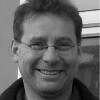 Paul
Weaver is principal research scientist with the UK's National Physical
Laboratory's functional materials research group. His research includes
energy harvesting, sensing and actuation and he leads the UK contribution to
the EMRP project "Metrology for Energy Harvesting". Dr. Weaver has over 20
years industrial experience in the development of electro-mechanical systems
and the applications of functional materials and has published over 50
papers and patents. He is a visiting Reader at Southampton University, holds
an M.A. degree in natural science from Cambridge University and a Ph.D.
degree from Southampton University. He is a chartered engineer and member of
the IET.
Paul
Weaver is principal research scientist with the UK's National Physical
Laboratory's functional materials research group. His research includes
energy harvesting, sensing and actuation and he leads the UK contribution to
the EMRP project "Metrology for Energy Harvesting". Dr. Weaver has over 20
years industrial experience in the development of electro-mechanical systems
and the applications of functional materials and has published over 50
papers and patents. He is a visiting Reader at Southampton University, holds
an M.A. degree in natural science from Cambridge University and a Ph.D.
degree from Southampton University. He is a chartered engineer and member of
the IET.
------------------------------------------------------------------
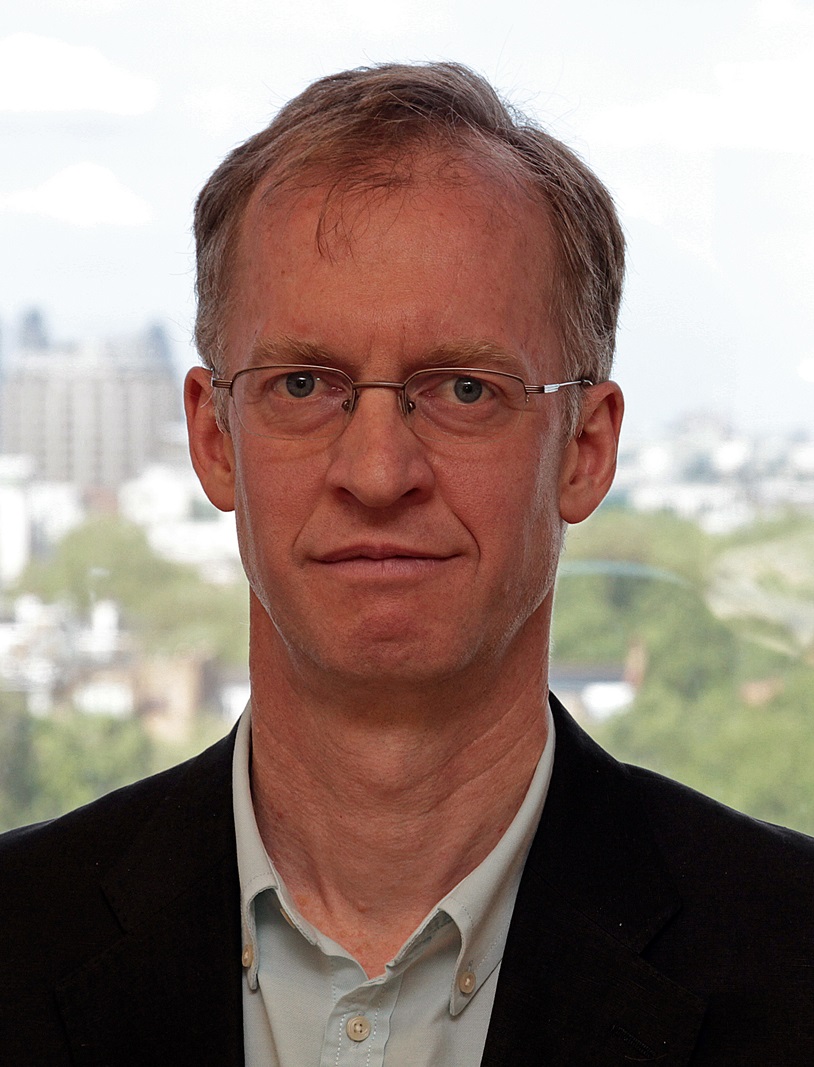 Eric
M. Yeatman has been a member of academic staff in Imperial College
London since 1989, and Professor of Micro-Engineering since 2005. He is
Deputy Head of the Department of Electrical and Electronic Engineering, and
has published more than 160 papers and patents, primarily on optical devices
and materials, and micro-electro-mechanical systems (MEMS). He is also
Co-Director of the college's Digital Economy Lab. He is a Fellow and Silver
Medalist of the Royal Academy of Engineering, and a Fellow of the IEEE.
Prof. Yeatman is also co-founder and chairman of Microsaic Systems plc,
which develops and markets miniature mass spectrometers based on MEMS
technology. His current research interests are in energy sources for
wireless devices (particularly energy harvesting), radio frequency and
photonic MEMS devices, and sensor networks.
Eric
M. Yeatman has been a member of academic staff in Imperial College
London since 1989, and Professor of Micro-Engineering since 2005. He is
Deputy Head of the Department of Electrical and Electronic Engineering, and
has published more than 160 papers and patents, primarily on optical devices
and materials, and micro-electro-mechanical systems (MEMS). He is also
Co-Director of the college's Digital Economy Lab. He is a Fellow and Silver
Medalist of the Royal Academy of Engineering, and a Fellow of the IEEE.
Prof. Yeatman is also co-founder and chairman of Microsaic Systems plc,
which develops and markets miniature mass spectrometers based on MEMS
technology. His current research interests are in energy sources for
wireless devices (particularly energy harvesting), radio frequency and
photonic MEMS devices, and sensor networks.